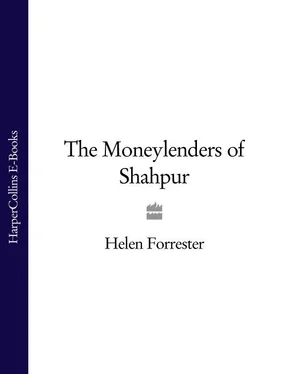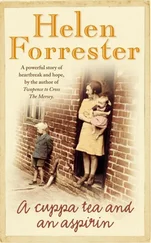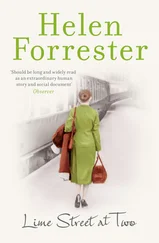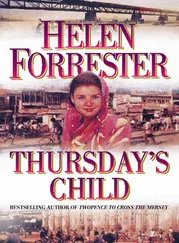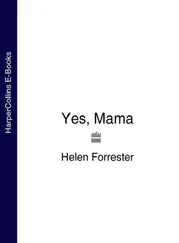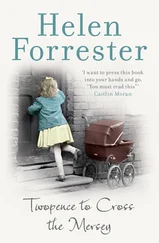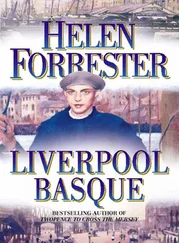‘Mahadev is a handsome man,’ put in the old woman, her voice almost wistful, only to be crushed by an icy look from Anasuyabehn.
‘And a generous and thoughtful one,’ added her father, cheering up a little, as he picked up a small box from his desk.
Mahadev had often been impressed by Anasuyabehn’s quiet and dignified demeanour when he had watched her in the streets; she walked with the perfect foot placement and timing of an elephant, he had many times told himself. Older and wiser than most bridegrooms, he greatly desired to win the favour of his wife-to-be. He had, therefore, insisted that the traditional bags of white and brown sugar be sent to her home, burying in them, instead of the usual two rupees, a small silver box with which to surprise her. It was this box which her father now handed to her.
Though she was very dejected, Anasuyabehn’s curiosity was aroused by the unexpected token. She took the box from her father and opened it.
On a fluffy bed of cotton reposed a small nose ring consisting of a single diamond set in gold. Exquisitely cut, it flashed in the sunlight with a delicate blue radiance, a beautiful ornament which spoke, with fabulously expensive eloquence, of its donor’s wealth, and of his interest in her as a person. With an odd quirk of humour, Anasuyabehn saw the mental agony with which a close-fisted, traditional moneylender must have parted with such a valuable gem. He must be in love to the point of insanity, she thought grimly.
Fascinated, she lifted the ornament out and laid it on the palm of her hand, a hand that began to tremble with a deep fear of the unknown. Here was proof positive that her suitor would not take a negative answer easily. The gift was really valuable and quite unnecessary at such a time.
Until her father had handed her the little box, she had taken it for granted that, somehow, she would be able to escape from the marriage agreement. But now fear seemed to creep out from the blue stone and wind itself round her heart. A man who loved passionately was not going to be fobbed off so easily – nor was his powerful family, who seemed to be bent on rising socially as a caste. She knew what it was to be in love, she admitted, in love with a strange Maratha from Bombay, and, as she met Tilak on various social occasions, she had begun to feel the white heat of it. What might a powerful man like Mahadev do, if he felt the same?
And deep down inside her was a little worm of added fear, nesting in her Gujerati respect for money, that, because of Mahadev’s undisputed wealth, she might be tempted to be unfaithful to the new unnourished love which possessed her – though Tilak was not a bad match; a professor had everyone’s respect and a steady, if not large, income.
She could feel fresh grief rising in her, in belated mourning for her original betrothed. If he had lived, she would have had a family by now and would never have lifted her eyes to Tilak – and Mahadev would have looked elsewhere for a wife. She had not cried at the time of her fiancé’s death – one rarely does about someone seen only once; but now she wished deeply that his thin, tuberculosis-ridden body lay between her and the fires of passion and fear now consuming her.
I’ll object, she thought, and her inward sense of weakness made her outwardly more belligerent. She gritted her teeth and glared furiously through her tears at her aunt.
Her father took her silence for reluctant acceptance, and said quite cheerfully, before her defiance could be expressed verbally, ‘Well, daughter, now you can see how highly Mahadev thinks of you. I think well of him myself and I believe you would learn to, too. Come, let us make him happy and give him a marriage date.’
Toothless and shrivelled as a dry orange skin, her aunt squatted on the floor, nodding her head and smiling amiably.
‘An astrologer should arrange it,’ she said, taking out her betal box and scraping round in it for a suitable piece of nut to chew. ‘Though first there should be some parties, so that my niece may meet her future husband.’
‘I don’t want to be married,’ said Anasuyabehn in a small tight voice.
‘Tut, tut,’ said her aunt, grinning as she chewed.
‘I’d rather be a nun.’
‘You’ll change your tune when you have a small son in your arms,’ said the old lady, waving one scrawny arm to hitch her sari further over her shoulder.
‘Father,’ implored Anasuyabehn, tears pouring down her face. ‘Must I?’
The Dean scratched his head in embarrassed silence. Finally, he said, ‘Daughter, I have loved you too well and kept you by me too long. It will not be easy to find anyone else as well-to-do, so healthy or so influential.’
‘I don’t like him, Papa. I don’t care about him being rich.’ She sniffed back her tears. ‘He’s not the only man in the world.’
‘Come, come, daughter,’ he said. ‘You have not yet even met your future husband. We’ll have all the usual tea parties, as if you were just a young girl, and you may speak with him. Don’t cry, child. I am sure you’ll be a patient and dutiful wife and will be amply rewarded.’
Her aunt sniffed and looked at the ceiling; her own rewards in marriage had been few. It was unnatural, however, for a woman not to be married; and this is what came of leaving girls single too long – they became stubborn.
Anasuyabehn covered her face with her sari and, under its comforting darkness, she saw for a moment a dark, thin face looking up at her as if enchanted. The new Zoology man was a fine man to look upon. She gave a little, shivering sigh.
‘Father, could you try for somebody else?’
‘Who?’
‘Perhaps someone in the University.’
‘They’re all married.’
Anasuyabehn tried to bring herself to the point of saying that the Professor of Zoology was not, but her courage failed her and she whispered, ‘Not all of them.’
‘Who isn’t?’ asked the Dean, his ire against his sister again beginning to rise.
Aunt cackled. ‘I know,’ she said. ‘I’ve seen you with the other girls, making sheep’s eyes.’
‘Well, who?’ queried the Dean again.
‘The Zoology Professor!’ laughed Aunt.
The Dean digested this information slowly. He had honestly not considered this young man, but the suggestion did not meet with much approval. Marathas were not popular in the Gujerat; thin, taut, warrior-descended, mentally agile, they were the very antithesis of Gujeratis; and this particular Maratha, with his demands for journals, for more lecture time, for a greater water supply, for a laboratory assistant, was already proving a bane to the worthy, but slow-moving Dean.
Meanwhile, Anasuyabehn stared unbelievingly at her aunt, marvelling at her powers of observation; she tended to think of her as part of the furniture, a necessary encumbrance, without life in herself.
Her fears redoubled.
Very quickly, Aunt loosed the deadliest shaft she possessed.
‘A man who kills and cuts up animals,’ she said.
Dean Mehta stared at her, horrified, his worst fears realized.
‘No!’ he exclaimed.
‘Oh, yes. The mother of one of his students told me.’
‘I must see him about it,’ he muttered.
Making a great effort to be calm and firm, he turned to Anasuyabehn. ‘A young man about whom we know so little would not be suitable, child. I would prefer you to marry a Gujerati, at least.’
Anasuyabehn nearly burst with rage at her aunt, and was about to explode verbally, when her little servant boy slid into the room.
‘The young Desai Sahib is here,’ he said to Dean Mehta. ‘He’s sitting on the front veranda.’
Anasuyabehn’s rage gave way to panic; she sprang to her feet as if to fly.
Her father and aunt got up immediately, and her father said kindly, ‘Don’t be afraid, child. Would you like to see him?’
Читать дальше
